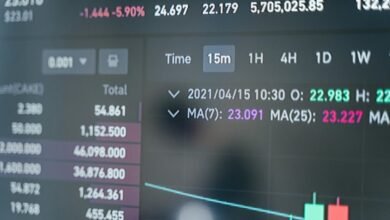
0121 599 0116 Mobile Call Source Breakdown: Tracing Origins
The number 0121 599 0116 reflects the Birmingham area code, suggesting its relevance to local commerce. Its usage typically aligns with businesses or service providers. However, there exists a notable risk associated with this number, as it may also be a vehicle for scams or spam. Understanding the full context of this number requires further exploration into its origins and the nature of the calls it generates. What insights could emerge from this investigation?
Understanding the 0121 Area Code
What defines the 0121 area code, and why is it significant within the UK’s telecommunications framework?
Originating in 1995, 0121 serves Birmingham, reflecting the city’s geography and demographic density.
Its history illustrates the evolution of telecommunication, facilitating local and national connectivity.
The area code’s expansion mirrors Birmingham’s growth, highlighting its role in modern communication and regional identity within a decentralized telecommunications landscape.
Identifying the Caller: Who Uses This Number?
How can one discern the identity of a caller using the 0121 area code?
Analyzing caller demographics reveals that this number is often employed by local businesses, service providers, and organizations.
Number usage trends indicate a predominant engagement from commercial entities seeking to establish contact with customers.
Understanding these factors can enhance awareness of who may be reaching out, fostering informed decision-making.
Potential Risks: Scams and Spam Calls
The prevalence of scams and spam calls associated with the 0121 area code poses significant risks to unsuspecting individuals.
Increased scam awareness is crucial to mitigate potential financial losses and personal data breaches.
Spam prevention strategies, such as identifying suspicious patterns and utilizing call-blocking technologies, are essential for safeguarding one’s privacy.
Vigilance remains paramount in navigating this treacherous landscape of telecommunications.
Best Practices for Handling Unknown Calls
When faced with unknown calls, individuals must adopt a systematic approach to effectively discern the nature of the caller.
Implementing call screening techniques, such as identifying the number and assessing prior interactions, is essential.
Additionally, engaging in caller verification processes—like requesting information or using reverse lookup services—can significantly mitigate risks associated with unsolicited communications, ensuring informed decision-making while preserving personal autonomy.
Conclusion
In conclusion, navigating the treacherous waters of calls from 0121 599 0116 demands a vigilant approach akin to a modern-day treasure hunt, where the prize may be genuine assistance or the dreaded pitfall of scams. As the line between legitimate callers and nefarious schemes blurs, individuals must arm themselves with knowledge and best practices to differentiate between the two. Ultimately, in this high-stakes arena of telecommunication, informed choices could be the difference between security and vulnerability.




